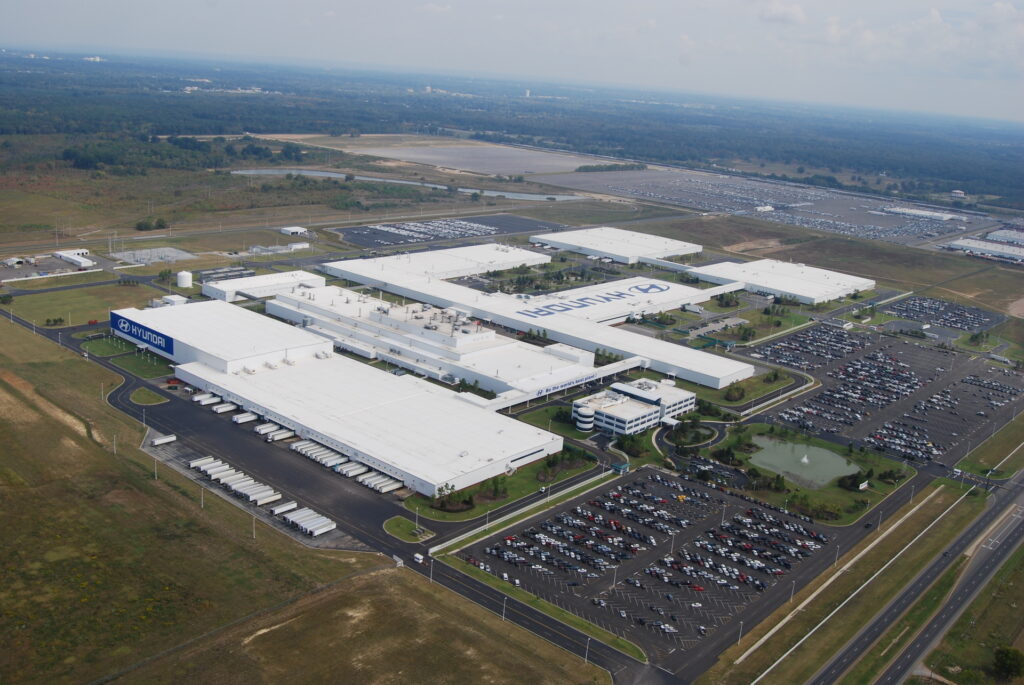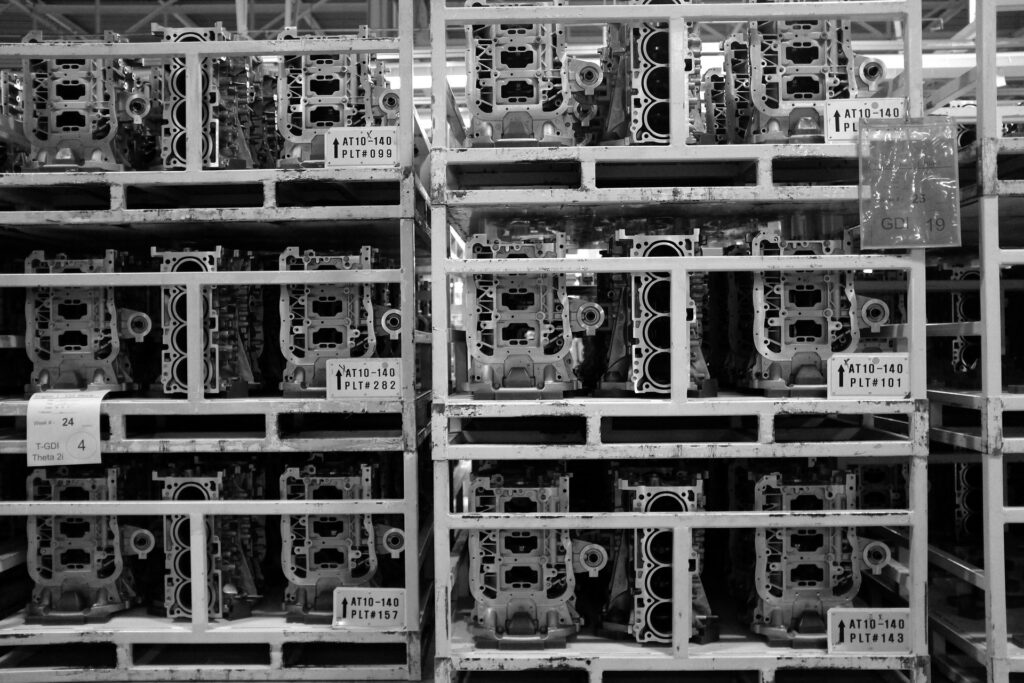Hyundai’s supply chain is once again the focus of scrutiny following new reports that its suppliers in Alabama broke child labor laws. Federal agencies are probing as many as six manufacturers throughout the state to determine if they employed minors.
Reuters reports that a plant in Greenville, Alabama, owned by Hwashin America Corp., which supplies auto body components to both Hyundai and Kia, employed a 14-year-old girl from Guatemala as recently as May.
Another parts manufacturer, Ajin Industrial Co., operates a factory in Cusseta, Alabama, and former employees alleged that it employed at least 10 minors. Similarly, SL Alabama, another Hyundai supplier, was found to have “repeatedly violated” the law “by employing oppressive child labor.” Among the children found to be working there were brothers, aged 13 and 15.
Although the allegations of child labor at SL Alabama and SMART have previously been reported, the claims that children were working at Hwashin and Ajin are new, and raise new questions about the extent of the problem, and the efficacy of the solutions to it.
More: Another Hyundai Supplier Has Been Accused Of Using Child Labor In Alabama

Alabama and the U.S. do not allow children under the age of 16 to work at auto plants and those under of 18 are prevented from working in hazardous areas, such as near metal presses and cutting machines. Despite that, employees have said that children 16-years of age and younger were welding, driving forklifts, and performing other tasks in the Alabama factories of Hyundai’s suppliers.
Both Hyundai and Kia have posted policies prohibiting the use of child labor at their plants and their suppliers’ plants. In the wake of previous reports on child labor, Hyundai’s chief operating officer, said that the automaker would cease business with SMART and SL “as soon as possible.” He added that it would also investigate all of its Alabama operations, and seek to end the use of third-party staffing agencies.
Those commitments were later walked back by Hyundai, though, which canceled plans to cut ties with SMART and SL, saying they had taken corrective action to fire hiring agencies that were found to be problematic.
The use of third-party staffing is common at factories in Alabama and throughout the south, where laws disfavor union representation. The use of these agencies is criticized by labor activists, though, since they allow factory owners to offload responsibility.
In the case of these factories, basic questions like who owns the staffing agencies that were used to find underage workers are hard to answer. As part of this investigation, Reuters reached out to an agency called JSS that was linked to the employment of a 14-year-old girl, who was barely four feet tall (1.2 meters) when she allegedly worked for Hwasin.

Its team spoke to a person claiming to represent JSS, as well as another hiring agency called JSSA. The representative claimed these organizations were completely unrelated, despite potentially being operated by the same person. Convoluted corporate structures like these cast doubt on the efficacy of firing a hiring agency in response to the discovery of child labor violations.
As authorities investigate, employees at a variety of Hyundai and Kia suppliers claim that they have worked alongside minors and that superiors at the plants showed little interest in addressing the issue. All the suppliers contacted by Reuters, though, did say that they would cooperate with investigators.
As to how this could happen in the first place, labor experts say that pressure from Hyundai and Kia is so high that suppliers are often willing to cut corners in order not to be fined by the automakers for delivering parts late. Suppliers, they say, can be charged as much as thousands of dollars per minute when parts are delayed. SL Alabama, meanwhile, was fined just $30,000 by Alabama’s Department of Labor after being found guilty of repeatedly employing “oppressive child labor.”
As supply chains became gnarled by the COVID-19 pandemic, the struggle to meet demand, among other factors, created an ideal environment for these kinds of violations to flourish.
“It seems like the stage was set for this to happen,” Terri Gerstein, director of the state and local enforcement project at Harvard Law School, told Reuters. “Plants in remote, rural areas. A region with low union density. Not enough regulatory enforcement. Use of staffing agencies.”





